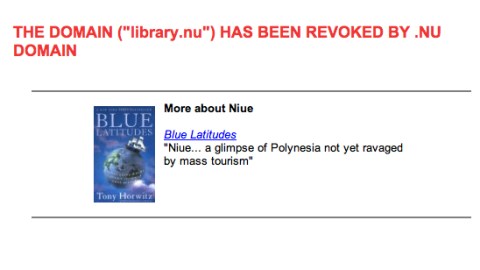Did the Digital Library of Alexandria Just Go Up in Flames?

If Julius Caesar hadn’t accidentally burned down the Library of Alexandria, the story goes, we long ago would have colonized Mars. That notion, popularized by Carl Sagan, among others, is that the intellectual adventure that has led us into space began at that library, “the brain and glory of the greatest city on the planet Earth.”
Today, the Internet is often hailed as our modern brain and glory, a machine that dwarfs the collective content output of antiquity. As Eric Schmidt of Google famously said, we create as much information in two days now as we did from the dawn of man through 2003. But does that mean that actual knowledge is being transferred, or does this just amount to a whole lot of spam? And that is to say nothing of other access barriers — cost being a major one — that constitute a formidable challenge for today’s knowledge economy.
Textbook publishing is an industry that is ripe for disruption, and companies like Apple are aiming to do just that. And yet, as has been the case so often during the information revolution, before the monopolists have moved into a given market, the pirates have first demonstrated the demand. Take library.nu, for example.
Before a German judge shut it down, this site offered between 400,000 and one million digital books for free. These included scholarly works on every imaginable subject, in many different languages.
Christopher Kelty, Associate Professor of Information Studies and Anthropology at UCLA, paid the following tribute in a recent post on Al Jazeera:
It was a remarkable effort of collective connoisseurship. Even the pornography was scholarly: guidebooks and scholarly books about the pornography industry. For a criminal underground site to be mercifully free of pornography must alone count as a triumph of civilisation.
And yet, the users of this site were pirates, after all, right? Their actions are no different than people who illegally share music files or other forms of popular entertainment. Not so, writes Alan Toner on his blog, knOw Future Inc. These people are autodidacts, Toner argues, whose search for knowledge is “ritually celebrated within ‘enlightenment’ culture.”
In other words, the textbook publishing industry is simply failing to serve this market because people either can’t afford books, or access them in another way. To quote Chris Kelty again:
They are a global market engaged in what we in the elite institutions of the world are otherwise telling them to do all the time: educate yourself; become scholars and thinkers; read and think for yourselves; bring civilisation, development and modernity to your people.
Read Kelty’s full post here.
Follow Daniel Honan on Twitter @Daniel Honan





